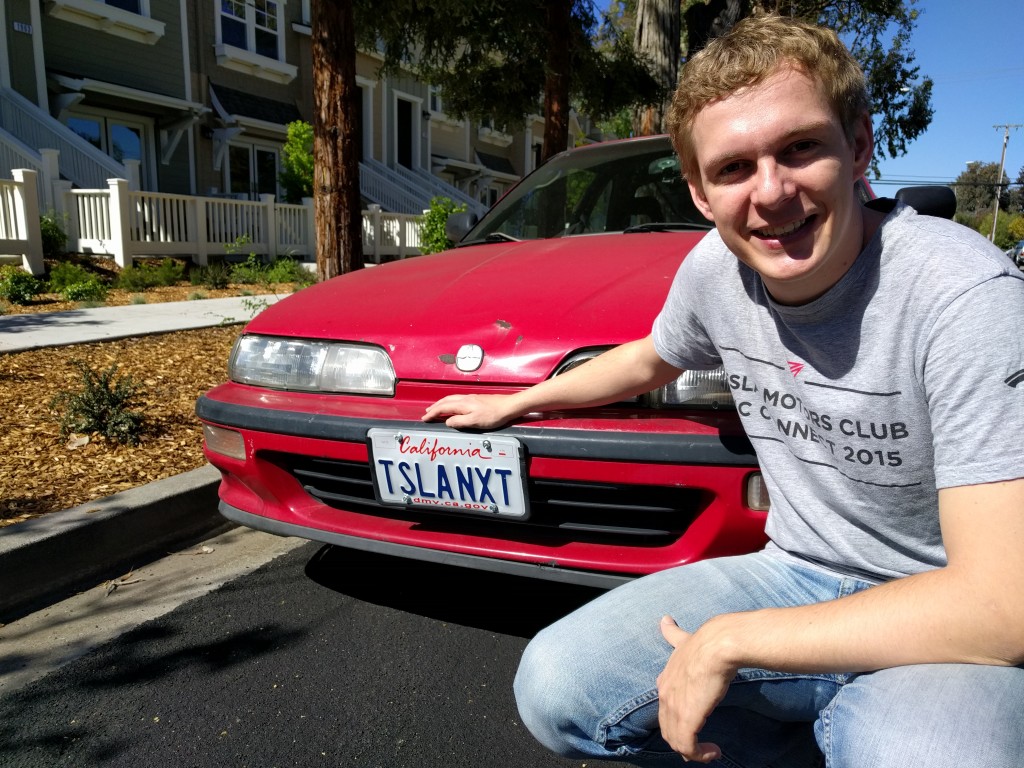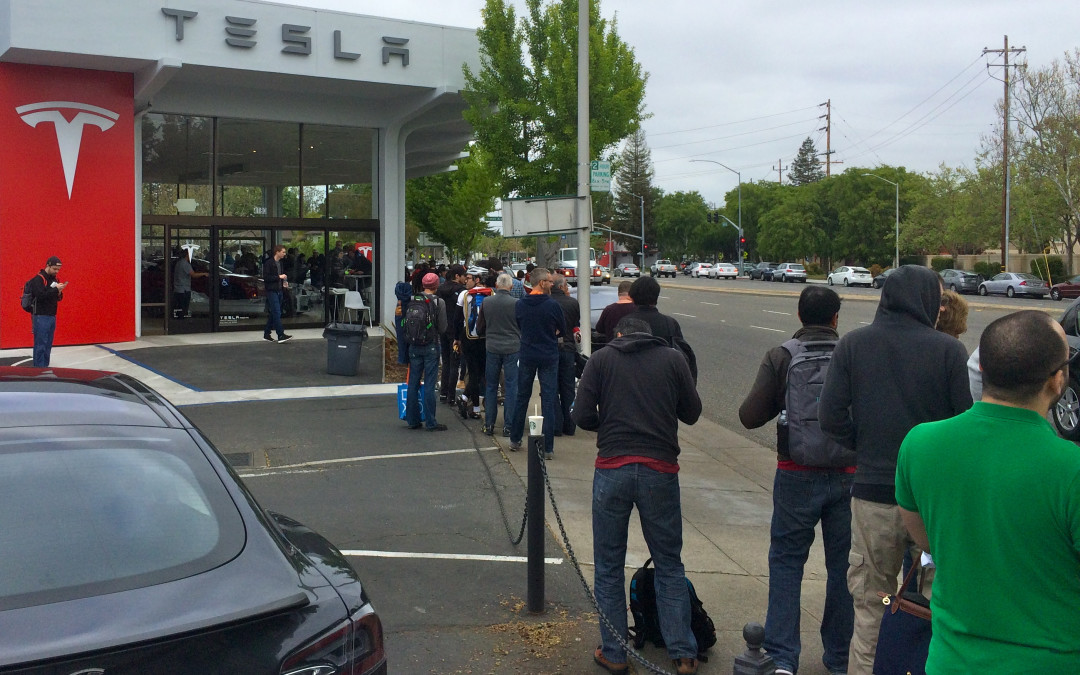By Alison van Diggelen, host of Fresh Dialogues
Last night, I joined the BBC’s Business Matters to discuss the launch of Tesla’s Model 3 and the remarkable 325,000 deposits it garnered in just seven days. Reports suggest that even Tesla CEO, Elon Musk was surprised by the number of people prepared to pay $1000 to get in line for this mass market electric car. It appears that his “Tesla secret masterplan” had been intentionally leaked. Does this mean that the Model 3 represents an iPhone moment for the auto industry?
I discussed all this with the BBC’s Roger Hearing and Madhavan Narayanan, columnist with the Hindustan Times in Delhi.
Here is a transcript of our conversation and a longer version of the report which aired on the BBC World Service. The transcript has been edited for length and clarity. Listen to the podcast here: Tesla discussion starts at 26:46
Roger Hearing: The Tesla 3…is that the way forward for electric cars? Now Alison, you’ve been having a look at the new Tesla…can you enlighten us on that?
Alison van Diggelen: Last Thursday, Tesla finally unveiled its “affordable” mass market car, the Model 3. Hours before it was actually unveiled, thousands of Tesla fans stood in line, sight unseen, to reserve one. This was a phenomenon, especially here in Silicon Valley where Tesla is headquartered and where they actually build the cars. I talked with several people who waited in line, and one Tesla fan who drives a Tesla (Roadster) but is just not interested in the Model 3…The key question now is: can Tesla deliver?
[Report begins]
Last Thursday, Tesla fans came out in droves to reserve the long awaited Model 3, the $35,000 all-electric car.
Small business owner, Tom Poppitz was one of thousands in Silicon Valley, to line up at one of Tesla’s six showrooms here. Each customer was prepared to put down a $1000 deposit for a car they’d never seen.
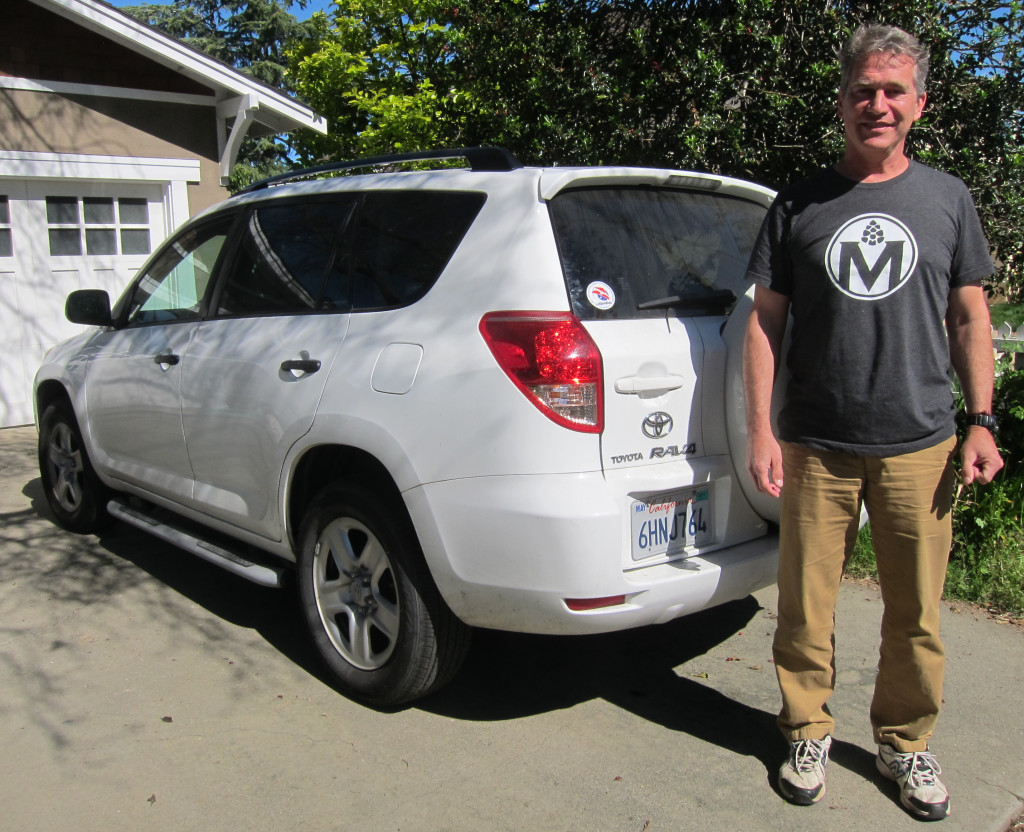 Poppitz: There was a lot of very well educated people in that line…they were going to buy this thing, no matter what it looked like…they were excited about it changing the world, changing the auto industry…
Poppitz: There was a lot of very well educated people in that line…they were going to buy this thing, no matter what it looked like…they were excited about it changing the world, changing the auto industry…
He likened it to an Apple product release, only better because it was sight unseen.
But what motivated Poppitz to get in line?
Poppitz: I’m not generally excited about cars…I’m a self-professed tightwad. The value proposition for this car is so completely different: frees you from buying gas… but my primary motivation: It changes macroeconomics in a major scale. Transitioning to electric cars can cure our trade deficits, it can have a quantum effect on our economy….
But not everyone is so optimistic that Tesla can actually deliver a world-changing product. I spoke with Anton Wahlman, a tech analyst.
He says Tesla’s two greatest challenges will be achieving profitability at $35,000 – where margins are razor thin – and beating some tough competition.
Wahlman: The unsexy factor in the whole equation…the product can be beautiful and all, but getting to an acceptable level of profitability is an extremely significant challenge.
He points to the brutal competition Tesla will face by the time it delivers its first Model 3’s in late 2017/and 2018. The Chevy Bolt hits showrooms later this year, and BMW, Audi, Jaguar, and others are in fast pursuit.
Walhman predicts that Tesla may face the same fate that Nissan did in 2010, when its all-electric Leaf started shipping …Many reservation holders demanded their deposits back.
Wahlman: (Nissan) They had zero competition… Tesla already has some competition …that will intensify greatly in ‘17 and by 2018, it’ll be in full bloom.
He acknowledges Tesla has a more attractive product than Nissan and its charging network is a moat-like barrier to competitors. But the Model 3 is not for every Tesla fan.
Silicon Valley techie, Carlos Morales drives a Roadster, Tesla’s limited edition sports car. He loves the quiet acceleration, and speed of his Roadster, but wasn’t prepared to reserve a Model 3. Why not?
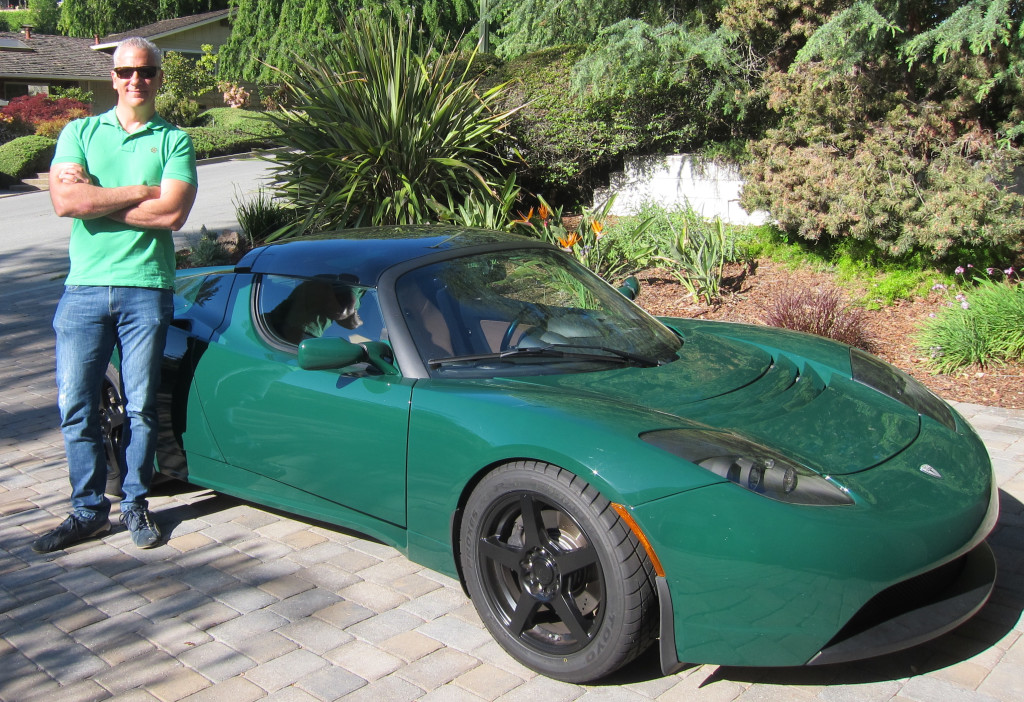 Morals: I see a Roadster once a month… 300,000 Model 3’s have been reserved. There’s going to be a lot of them, that’s wonderful for the planet and Tesla. But it’s not going to be as exclusive.
Morals: I see a Roadster once a month… 300,000 Model 3’s have been reserved. There’s going to be a lot of them, that’s wonderful for the planet and Tesla. But it’s not going to be as exclusive.
There’s always going to be a class, a group of people who are looking at that.
Despite questions of reliability and servicing challenges pouring cold water on last week’s euphoria, Tesla true believers feel they were part of automotive history. Will this be an iPhone moment for the auto industry? At least 270,000 people hope so.
[Report ends]
Alison van Diggelen: Carlos speaks for probably a small segment of people who won’t be attracted by the Model 3. But as of this morning they’ve now had over 325,000 willing to put down a $1000 deposit…that level of interest is unprecedented in the auto industry. A lot of people are drawing analogies with the iPhone. There’s a euphoria about this new product…the difference is: people are going to have to wait about two years before the car is actually delivered.
Roger Hearing: That’s a very long time, isn’t it? Isn’t that a lack of attraction in itself?
Alison van Diggelen: The analyst, Anton Wahlman emphasized that it’s not that these hardcore fans aren’t prepared to wait…but in the two year period, they may be tempted off their deposits. Wahlman pointed out all the competition. Jaguar is even coming out with an electric vehicle, Audi…the Chevy Bolt will actually be in dealerships this Christmas. I did speak with one big Tesla fan – Washington Post columnist, Vivek Wadhwa – and asked him if he’d be tempted by the Bolt. He said it was like comparing a rotary phone with the iPhone. That’s the level of fanboy-ism there is in Silicon Valley.
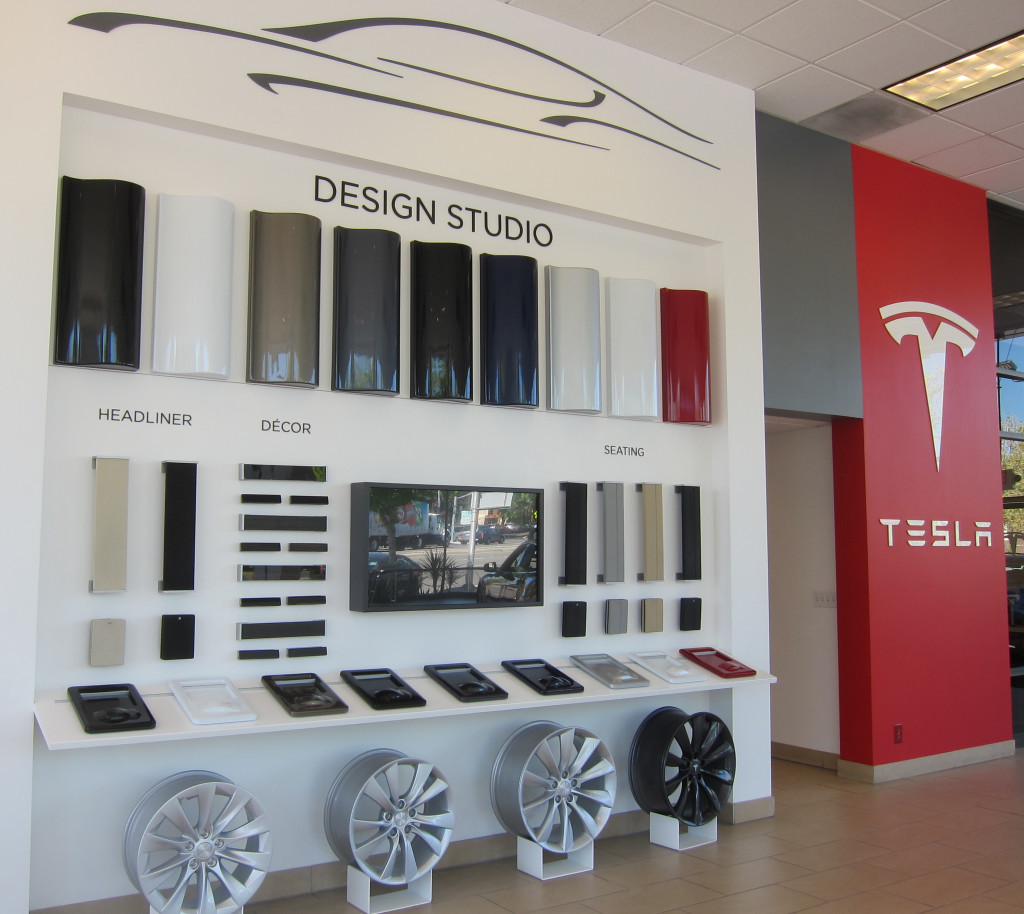 Madhavan Narayanan: We’re not discussing cars anymore. We’re discussing new patented technologies. If Tesla has patented technology that makes it distinguishable and superior to other electric cars, we’re talking about a paradigm shift, not simply a better car.
Madhavan Narayanan: We’re not discussing cars anymore. We’re discussing new patented technologies. If Tesla has patented technology that makes it distinguishable and superior to other electric cars, we’re talking about a paradigm shift, not simply a better car.
Roger Hearing: The big thing here in Britain is where you can actually get the charge? It’s fine in big urban areas… and for short journeys. Would that be true in America where there are a lot of very long journeys and presumably not a lot of electrical stopping places along the way?
Alison van Diggelen: Yes, that is a big issue. Anton Wahlman pointed out that Tesla has this (proprietary) network for these long distance drives. They have hundreds of superchargers, (fast chargers) all over the U.S. They’ve introduced them in Europe too for people doing long journeys in their Tesla Model S. Wahlman described this like as a moat around Tesla’s business model and no other electric vehicle has something similar. So that could actually be an advantage (for Tesla). These other companies will have to catch up. With mass market, compared to a luxury car, there is a point: most luxury car buyers own homes and they can charge at home. If you’re living in an apartment, then that’s a whole different thing. That’s definitely a challenge, but Elon Musk is quite the visionary and he is aware of this and they are planning to double or triple their Tesla charging network.
Roger Hearing: That must be a problem in India, Madhavan, where do you charge these electric cars?
Madhavan Narayanan: Let’s look at what happened with cellphones. The paradigm of Tesla is strikingly similar. You have cell towers everywhere and they carry the signals. Why not set up a charging station network? To use Silicon Valley’s favorite expression: I see an electric vehicle ecosystem emerging. There will be new winners and losers in the game.
Roger Hearing: An electric car ecosystem? That’s a concept to carry around, as we go into what does seem to be the electric car era.
Read lots more about Tesla’s remarkable journey here
Watch my in-depth interview with Elon Musk – on Tesla, SpaceX and his desire to die on Mars.
Photo credit: Top photo of lines at Tesla showroom in Palo Alto by Michael Berlin, who is featured in the photo below:
